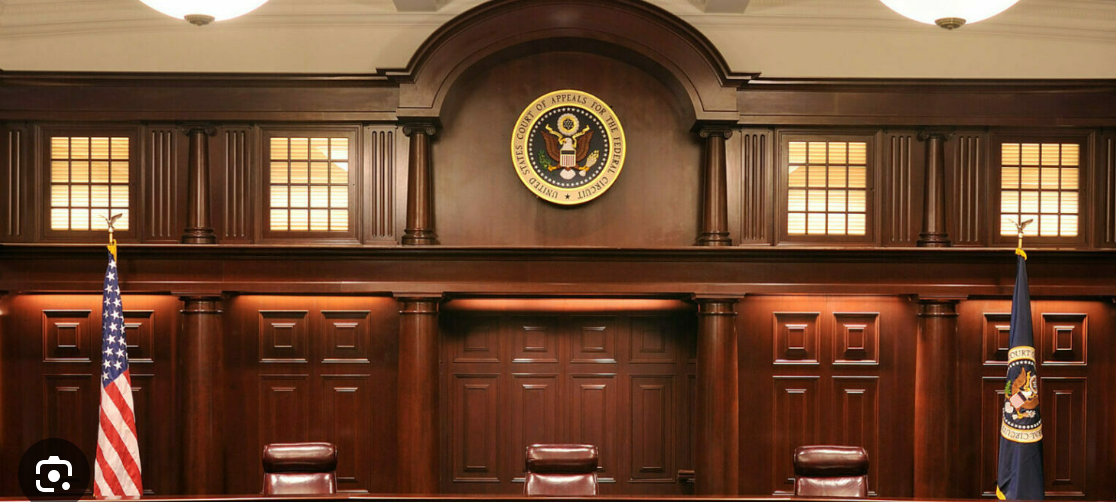A federal judge has temporarily blocked the Trump administration’s controversial move to revoke Harvard University’s authority to enroll international students, marking a significant legal victory for one of the world’s leading educational institutions.
The ruling came from U.S. District Judge Allison Burroughs, who responded swiftly after Harvard filed a lawsuit challenging the federal government’s decision to strip its certification under the Student and Exchange Visitor Program (SEVP). Harvard claimed that the move was an act of political retaliation for the university’s resistance to certain policy demands from the Trump administration, including controversial actions targeting campus policies on equity and free expression.
Harvard’s lawsuit argues that the revocation was a blatant violation of federal law and a targeted attempt to suppress the institution’s First Amendment rights. The court order issued by Judge Burroughs pauses the Department of Homeland Security’s decision, effectively allowing Harvard to continue enrolling and supporting international students while the legal process unfolds.
Alleged Retaliation and Constitutional Concerns
According to Harvard, the federal government’s action is not only unprecedented but also punitive in nature. The university described the revocation of its SEVP certification as part of a broader campaign to coerce academic institutions into complying with ideological expectations. Specifically, Harvard pointed to demands that it turn over student disciplinary records, dismantle diversity programs, and alter its internal governance and curriculum.
“The government’s decision is a retaliatory strike aimed at undermining academic freedom and violating our constitutional rights,” the university stated in court documents. Harvard further alleged that the action would immediately disrupt thousands of academic programs, research projects, and support systems that depend on international student contributions.
In a strongly worded affidavit, Mark Elliott, Harvard’s vice provost for international affairs, highlighted the extensive damage such a ban would cause. “There is simply no replacing the presence and contributions of these individuals,” he stated, noting that international students constitute nearly 27% of the current student population.
A Legal and Political Flashpoint
The Trump administration, through the Department of Homeland Security, justified the move by accusing Harvard of failing to provide sufficient conduct records for its foreign students and refusing to make required reforms. Homeland Security Secretary Kristi Noem issued a formal notice ordering Harvard to submit five years’ worth of records within 72 hours, which the university claims it had already provided.
“This lawsuit seeks to kneecap the President’s constitutionally vested powers under Article II,” said Tricia McLaughlin, a Homeland Security spokesperson. “Enrolling foreign students is a privilege, not a right.”
The administration also argued that elite institutions like Harvard have turned into “hot-beds of anti-American, anti-Semitic, pro-terrorist agitators” and accused the university of endangering Jewish students while promoting pro-Hamas sentiments on campus.
Harvard has pushed back against these accusations, stating it has acknowledged antisemitism on campus and has begun to implement changes to ensure student safety. The university insists that the administration’s demands — including audits of faculty and student viewpoints — are unconstitutional and overreach federal authority.
Implications for Higher Education
The ban, if upheld, would have affected over 6,700 Harvard students on F-1 and J-1 visas. Many professors expressed concern that international scholars, who form the backbone of numerous research labs and academic programs, would be forced to transfer or face deportation.
“This policy is horrendous on every level,” said Jason Furman, a Harvard economics professor and former adviser in the Obama administration. “It would cripple American innovation and our academic competitiveness.”
Former Harvard president Lawrence Summers called the move “extortion,” accusing the administration of using government powers to settle ideological disputes. “Sending every Israeli student out of Harvard is much more discriminatory against Jews than anything the administration has complained about,” he said.
International Response and Student Reactions
The announcement of the ban sparked fear and confusion among students and faculty, especially those preparing to begin the academic year. Jared, a freshman from New Zealand, called the situation a “heart-drop moment,” while Karl Molden, an Austrian junior currently abroad, said he fears he may not be allowed to return.
International students, many of whom rely on Harvard’s generous financial aid packages, now face uncertainty about continuing their education. Some are also concerned about losing internship opportunities and research positions if forced to transfer.
Australia’s ambassador to the U.S., Kevin Rudd, expressed concern over the impact on Australian students and promised consular support. Meanwhile, Harvard’s faculty chapter of the American Association of University Professors issued a strong condemnation, calling the policy “an unconstitutional assault.”
Pattern of Federal Pressure
The lawsuit over SEVP certification is not the only legal battle between Harvard and the Trump administration. Harvard is also challenging a $2.65 billion freeze in federal research grants, which it says is part of a pattern of pressure to conform to federal ideological preferences. The IRS is reportedly considering revoking the university’s tax-exempt status.
In each of these conflicts, Harvard has argued that the administration is targeting it for defending principles of academic freedom and diversity. Judge Burroughs, an Obama appointee, has been assigned to hear both lawsuits, giving her a comprehensive view of what Harvard calls a “campaign of coercion.”
While the legal process continues, Harvard has vowed to support its international students and maintain its global character. University President Alan Garber reaffirmed the school’s commitment: “You are our classmates and friends, our colleagues and mentors, our partners in the work of this great institution. We will support you.”
The court’s decision to halt the ban, even temporarily, provides a reprieve for international students and reaffirms the importance of constitutional safeguards in higher education policy. As the legal proceedings advance, the broader implications for universities across the U.S. remain significant, with many institutions watching closely to see whether Harvard’s stance will set a national precedent.

